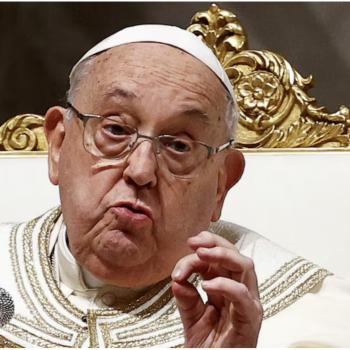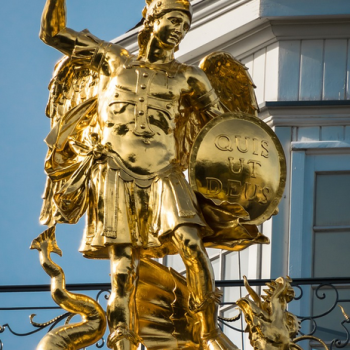How do I feel about Jews getting tattoos? That is totally up to the individual (except for my kids). It should not stop anyone from being buried in a Jewish Cemetery. As to it being respectful or disrespectful, that refers to intent. A person who has the tattoo of a number in honor and memory of people who were dehumanized by numbers is trying to be respectful. A person who has Bugs Bunny tattooed on his/her tusch is not being respectful nor disrespectful. The thought was not in her/his mind at all.
Personally, I always wanted to get a tattoo but there are two reasons why I did not. One is that my taste in art changes. I might place a Monet on my arm but when my taste in art changes and I don't want a Monet but rather a Manet, I must look for other canvases on my body and I still am stuck with the Monet. My second reason is that I have noticed that my body changes with age. If I put a battleship over my heart in my youth, it might become a submarine in later years.
-Reb Bahir
Rabbi Bahir Davis is the spiritual leader of Rocky Mountain Hai based in Lafayette, Colorado, and a frequent contributor to Patheos.
Rabbi Yossi Serebryani
 I translate Leviticus 19:28 the same way Chabad teaches: "You shall not etch a tattoo on yourselves." This prohibition applies to all tattoos besides those made for medical purposes, such as to guide a surgeon making an incision.
I translate Leviticus 19:28 the same way Chabad teaches: "You shall not etch a tattoo on yourselves." This prohibition applies to all tattoos besides those made for medical purposes, such as to guide a surgeon making an incision.
Today tattooing is the epitome of the narcissism that afflicts society. Judaism looks at life as a journey, and encourages us to look at long-term consequences of our actions (tikkun olam, etc.). Tattooing is the ultimate 'living in the moment' without concern or acknowledgment that people, relationships, and times change; it is making oneself a time capsule, capturing life as is with the hope that it will never change.
I don't understand the question about the Holocaust, for everyone's life is lived in a different context. A former chasid that gets a tattoo is telling his community to take a giant leap off a short pier. For someone that lives in mainstream USA culture, it is the fashion statement of the moment. When the relationship with G-d develops to a point that they believe that one of the ways to express their love of G-d is to give him a voice and choice in their dress and lives, they would not get a tattoo because G-d is allergic to that form of expression.
-Rabbi Yossi Serebryanski
Rabbi Yossi Serebryanski, raised and educated in Australia, served as a guidance counselor and personal mentor to hundreds of students during his seven-year tenure at the Rabbinical College of America in Morristown, N.J. Rabbi Serebryanski is known for his sensitivity and depth of caring, qualities he utilizes in bringing the richness of our tradition to Jews of all backgrounds in a warm, tolerant, and friendly manner. He is currently the rabbi of Chabad of South Denver.
Liz Polay-Wettengel
 My Judaism and my body modification go hand-in-hand for me. They are both part of who I am and how I represent myself. I am a tattooed Jew. I am proud of both of these facets of my life. I am not ashamed to go to Shul and I am not afraid of the questions. I am not afraid to raise my son to be a good Jew just because I have tattoos. What I dislike is the assumption that I am not as good a Jew because of my modifications. I completely disagree. I am a very good Jew. I am honest and kind and respectful. I work hard for my family and my community and help others.
My Judaism and my body modification go hand-in-hand for me. They are both part of who I am and how I represent myself. I am a tattooed Jew. I am proud of both of these facets of my life. I am not ashamed to go to Shul and I am not afraid of the questions. I am not afraid to raise my son to be a good Jew just because I have tattoos. What I dislike is the assumption that I am not as good a Jew because of my modifications. I completely disagree. I am a very good Jew. I am honest and kind and respectful. I work hard for my family and my community and help others.
What I don't understand the most is the prejudice my own Jewish people show me, and others, for choosing to reclaim the ancient art of body modification. This in and of itself does not convey the Judaism of acceptance that has always been expressed to me in Shul.
The art of tattoo is not bad, just as rhinoplasty isn't bad... which coincidentally is accepted by the Jewish community even though it is much more of a disfigurement of the body than just applying ink to skin. So many good Jews are faithful and loving and raise their children Jewish... and we're modern and tattooed and pierced (we even sometimes eat pork). We honor the victims of the Holocaust; we honor our faith. We don't believe we are any less Jewish because of how we decide to decorate our bodies, and we shouldn't be pushed away from participating in the vibrant Jewish life we want to enjoy.





